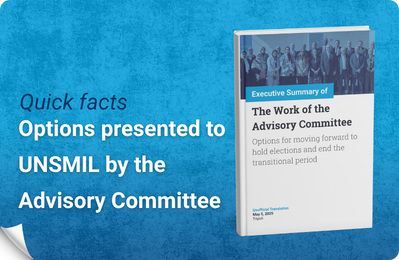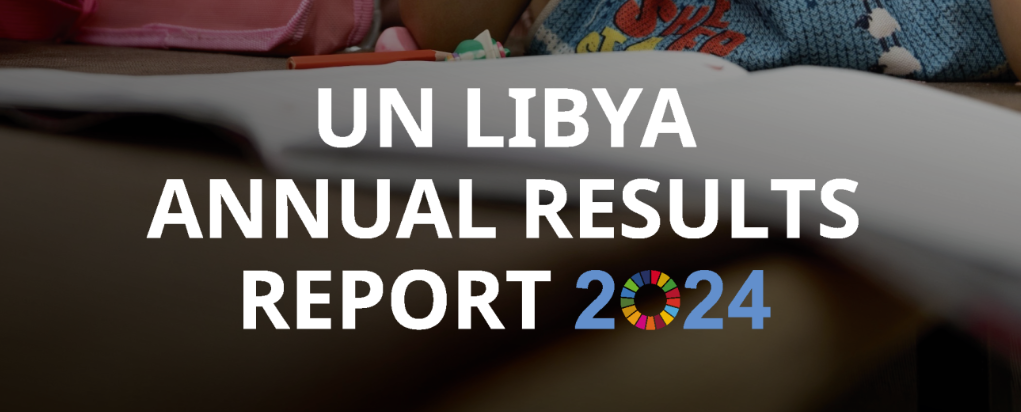Briefing by Tarek Mitri SRSG for Libya - Meeting of the Security Council 09 June 2014
(Check against delivery)
Mr. President, Esteemed Members of the Security Council,
1. There is a continuing sense of concern, among the Libyan people regarding the prospect of a protracted conflict. The crisis which has dominated the political scene for the past few months poses a threat to their country’s political transition.
2. Following a decision by the General National Congress to endorse a new cabinet of Ahmed Meiteeg on 26 May, the government of Abdallah al-Thnni acting as caretaker, refused to hand over power citing procedural irregularities. This morning, Libya's Supreme Court ruled that the election of Mr Meiteeg was unconstitutional, opening a way out of the institutional crisis. The need to respect this ruling should be affirmed. The initial reaction in Tripoli to the court ruling is positive – the Second Deputy President of the Congress, Salih Makhzoum, and Meiteeg himself both announced separately that they will comply with the decision.
3. Also, the past few weeks witnessed significant security developments. Foremost among these has been the move by retired General Khalifa Haftar in mid-May to mobilise some units of the Libyan National Army, as well as other tribally-affiliated armed groups, against groups he has labelled as terrorist and blamed for much of the violence and targeted assassinations in Benghazi and other areas of eastern Libya.
4. The military operation, dubbed ‘Operation Libya Dignity’, elicited some expressions of support. But there are also those who accuse General Haftar of seeking to unseat the legitimately elected institutions of the state, and using the threat of terrorism as a pretext to staging what they called to be a “coup d’Etat”.
5. In previous briefings to you, I could not understate the risks of growing dangerous security void in Libya. Hundreds of Libyan citizens, mainly security personnel but also judges, journalists and other civilians, have been victims of a systematic and unrelenting campaign of targeted assassinations and other acts of aggression.
6. However, any viable long-term strategy aimed at addressing this phenomenon and rooting out terrorism cannot be borne out of unilateral and external initiatives, nor can it be limited to military solutions. There should be an end to the violence inflicted on the civilian population of Benghazi. UNSMIL reiterates its condemnation of attacks against civilians, whoever are their perpetrators.
Mr. President,
7. In Tripoli, the crisis over the appointment of a new Prime Minister has accentuated since February the strong political polarisation in the country. Tensions have given way to intermittent clashes on the streets of the capital between rival brigades and other armed groups under the nominal control of the Libyan authorities. On May 18, armed groups forcibly entered the grounds of the General National Congress in order to prevent the Congress from pressing ahead with the election of a new Prime Minister.
8. Strong political disagreements over the functioning of institutions and their legitimacy has revealed mutual distrust among the main political protagonists. The radicalization of positions on both sides of the political divide were exacerbated further by accusations of seeking power by all means, and suspicion of growing external interference in favour of the adverse party.
Mr. President,
9. Notwithstanding the political and security crisis that has engulfed Libya, the constitutional process has made considerable progress since my briefing to the Council in March. On April 21st , the General National Congress convened the first session of the Constitutional Drafting Assembly (CDA) in al-Baida. Following an opening ceremony, the members elected their chair, deputy chair, and rapporteur, and adopted rules of procedure. The assembly is currently developing its committee structure, work plans, and public outreach plans. UNSMIL stands ready to provide technical assistance, at the request of the CDA, and continues its efforts to coordinate international support to the constitutional process.
10. In my last briefing, I described how boycotts and security problems disrupted the election of the Constitutional Drafting Assembly in February and left 13 seats unfilled. In the intervening period, eight of those seats were filled through additional rounds of polling. Efforts by the CDA itself are underway to secure that all areas of Libya and all “components”, as they like to call it in Libya, of the Libyan society are represented in the work of the assembly.
11. In joint partnership with a range of women’s organisations, UNMSIL has launched the “Women’s Dialogue Initiative” to engage with the media, religious, political and societal actors in a public debate on constitutional issues of particular significance to women.
Mr. President,
12. “The High National Elections Commission of Libya is now preparing, with UN support, the election of the 200-member Council of Representatives that will succeed the General National Congress. The total number of registered voters reached 1.5 million. A total of 1,714 candidates have registered, including 152 women contesting 32 reserved seats. Polling is expected on June 25. We have called on all parties to ensure that elections are held in a peaceful atmosphere and not delayed. It is hoped that these elections will augur with confidence and popular interest a third phase of transition process, before a new constitution is approved.
Mr. President,
13. The security situation continues to impede the proper functioning of the justice system. Courts have stopped working for prolonged periods in Derna, Benghazi and Sirt in protest at the continuing attacks on prosecutors and judges, among other state officials.
14. Although the General National Congress extended to 2 April the deadline for completing the judicial screening of detainees in compliance with the Law on Transitional Justice, this task remains outstanding. Figures collected by the Ministry of Justice with UNSMIL’s assistance indicate that in early March around 6,200 inmates remained held in facilities under the authority of the Judicial Police, of whom only about 10 percent had been tried.
15. The trial of 37 former regime officials, including Saif al-Islam Qadhafi and Abdullah al-Senussi, began at the Appellate Court of Tripoli. This trial is a crucial test for Libya’s willingness and ability to conduct fair trials. UNSMIL has voiced concerns about difficulties in ensuring full legal representation for all defendants and proper access by lawyers to the case files and to their clients. Recently, the court appears to be in the process of addressing such matters.
16. UNSMIL has visited all defendants, with various levels of supervision, in Tripoli, as well as in Misrata and Zintan. UNSMIL has been denied access to other detainees held in al-Hadhba prison on grounds that they have not been charged. I have strongly protested about the brief detention in al-Hadhba of an UNSMIL senior staff attending as observer the trial session of 11 May and at false accusations levelled against him. UNSMIL received oral apologies and assurances from the Libyan authorities of their commitment to respect the Status of Mission Agreement between Libya and UNSMIL. However, his personal effects have not been returned. Therefore I decided to suspend the attendance of UNSMIL staff to other trial sessions in al-Hadhba until the case of our colleague is fully resolved.
17. More recently, on 4 June, four UNSMIL staff members, and upon their return from Al Bayda, were detained by the airport security authorities and ill treated. During their detention, which lasted more than an hour, false accusations against them, once again, were cited. Their release occurred after the intervention of the Ministry of Interior. I protested and reminded the Libyan authorities, once again, of their obligation to respect the Mission agreement signed with UNSMIL.
Mr. President,
18. The current situation in Libya has inevitably slowed the pace of security sector rebuilding and reform. Nonetheless, there has been some progress in developing the operationalization of the Rome Conference Security Compact. Assistance is given to the Ministry of Defence committee in preparing a defence policy and strategy, and having a proper management and security of arms and ammunition, a critical issue in Libya.
19. However, the Rome Security Compact also included measures to establish proper governance of the security sector, including the difficult issues of disarmament and reintegration of the armed groups. So far there has been no sustainable progress.
Mr. President,
20. Today the United Nations are called upon to facilitate a political dialogue among all parties. This is more crucial than ever before. To this end, I have redoubled my efforts to urge all parties in Libya to resolve the political impasse through peaceful means, and to impress upon them that a resort to the use of force will have disastrous consequences for the country. Following consultations with all concerned parties, I will be convening, within the next ten days, a meeting that brings representatives of the major actors (political leaders, personalities, women, tribal leaders…), with the aim of forging an agreement on principles of political interaction, national priorities during the remainder of the transition, and on ways of addressing immediate security, and otherwise divisive issues. The stakes are high, and we will spare no effort in helping prevent Libya’s descent into greater instability and violence.
Thank you.
 United Nations Peacekeeping
United Nations Peacekeeping UN
UN









